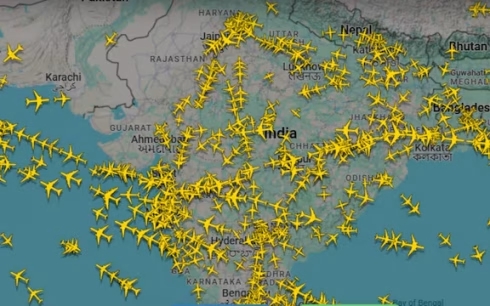KABUL, Afghanistan — Pakistan and the Taliban administration in Afghanistan have agreed not to allow their territories to be used for terrorist activities against each other, Pakistan’s deputy prime minister and foreign minister, Ishaq Dar, said during a visit to Kabul on Saturday.
Speaking at a joint press conference with Amir Khan Muttaqi, the Taliban’s acting foreign minister, Dar said both sides had pledged to enhance security, economic, and diplomatic cooperation, and committed to taking “decisive action” against any individual or group threatening either country.
“No individual or group should be allowed to use our soil or that of Afghanistan to harm the other,” Dar said, adding that “both countries have a responsibility to act firmly against such elements.”
During his visit, Dar also met with Mohammad Hassan Akhund, the Taliban’s administrative deputy prime minister, and Abdul Salam Hanafi, discussing key issues including strengthening bilateral relations, ensuring border security, promoting trade and transit, and advancing regional connectivity projects.
Dar called Afghanistan his “second home” and expressed hope that Afghans would view Pakistan similarly. He also invited Taliban officials to visit Islamabad, emphasizing the importance of deepening ties.
According to a statement from Pakistan’s Ministry of Foreign Affairs, the two sides agreed to formulate strategies for increased cooperation in security, trade, transit, regional connectivity, and people-to-people relations.
Dar stressed that Pakistan is taking practical steps to expand trade with Afghanistan, including reducing tariffs on selected goods, and is committed to providing the necessary facilities to ease transportation and commercial activities.
In a statement released by the Taliban’s Ministry of Foreign Affairs, Muttaqi raised serious concerns about the treatment of Afghan migrants in Pakistan and the ongoing forced deportations. He criticized what he described as mistreatment and violations of migrants’ rights.
In response, Dar assured that Afghan migrants would not be mistreated and that Pakistan’s security forces had been instructed to prevent any arbitrary actions. He also emphasized that the assets of Afghan migrants would be protected and that no one would be allowed to confiscate their property.
During the meetings, major regional projects such as the Trans-Afghan railway, CASA-1000 electricity transmission project, and the TAPI gas pipeline were discussed. Both sides reaffirmed their commitment to advancing these initiatives, viewing them as crucial for regional development and cooperation.
Dar’s visit comes amid strained relations between Pakistan and the Taliban government over rising border tensions, the mass deportation of Afghan migrants, and Islamabad’s accusations that militant groups are operating from Afghan soil — claims the Taliban have denied.





